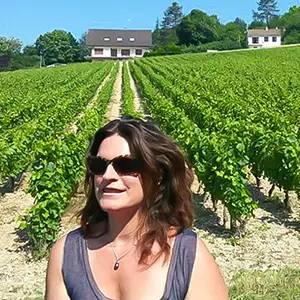Interview with Charles Coulombeau : A Culinary Visionary Blending Precision with Heart
Charles Coulombeau’s culinary journey is a story of passion, resilience, and creativity. Growing up in Normandy, Charles was surrounded by the simple joys of family meals and the beauty of seasonal ingredients. Summers spent on his grandparents’ farm taught him an early appreciation for the rhythms of nature and the importance of working with what the land provides.
A basketball injury in his teens unexpectedly led him to the kitchen, where he discovered his true calling. From his first steps at the Lycée Hôtelier de Biarritz to working in renowned kitchens like Relais de la Poste and Les Prés d’Eugénie, Charles’s talent and dedication shone through. Along the way, he met Roxane, his wife and partner, who shares his passion for gastronomy.
Charles Coulombeau’s culinary journey has been marked by significant achievements that have shaped his career. In early 2020, he won the prestigious Taittinger Prize, an international culinary award for “signature” cuisine. At that time, he was the head chef at Gravetye Manor in Sussex, England, which held one Michelin star. Later in 2020, he took on the role of managing the restaurant La Maison dans le Parc in Nancy, France. In June 2024, he expanded his gastronomic ventures by opening Yozora, a restaurant located within the Centre Pompidou-Metz.
Yozora, meaning “night sky” in Japanese, reflects Charles’s passion for Japanese cuisine and culture, offering an intimate dining experience inspired by the omakase tradition.
His career has taken him across the globe, from Burgundy to England and even Japan, where he deepened his love for precision and seasonality. These experiences shaped his unique style—a seamless blend of French tradition and Japanese influence. Now leading La Maison dans le Parc in Nancy and Yozora in Metz, Charles continues to create dishes that tell stories, honor the seasons, and surprise the palate.
When I sat down with Charles, what impressed me most wasn’t just his culinary genius but his warmth, humility, and the joy he brings to everything he does. He’s not just an extraordinary chef—he’s an extraordinary person, and I’m thrilled to share our conversation with you.
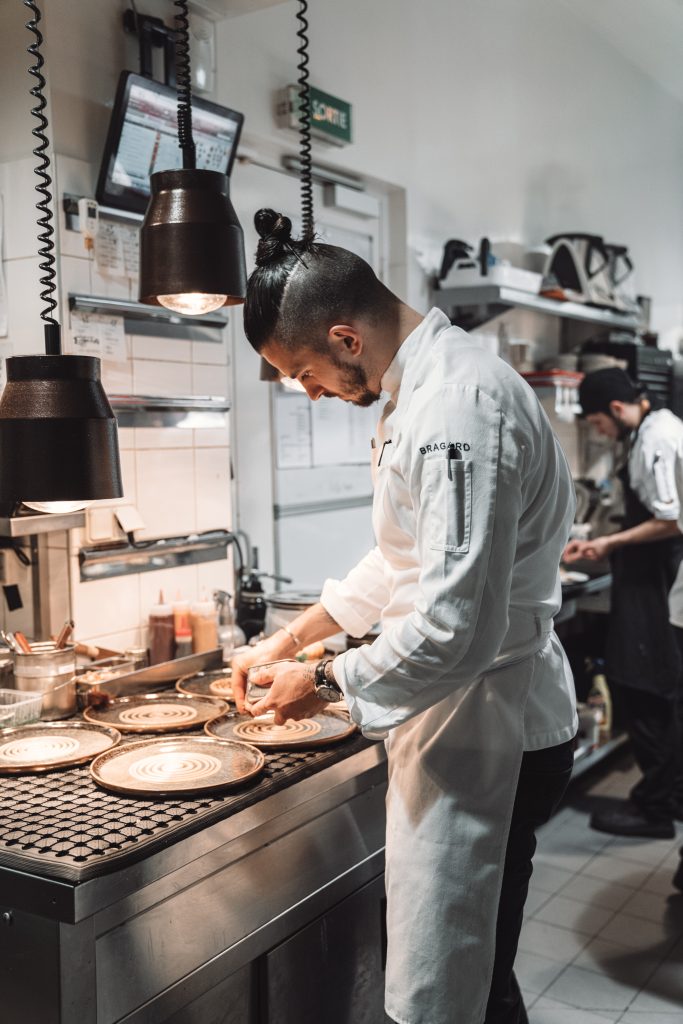
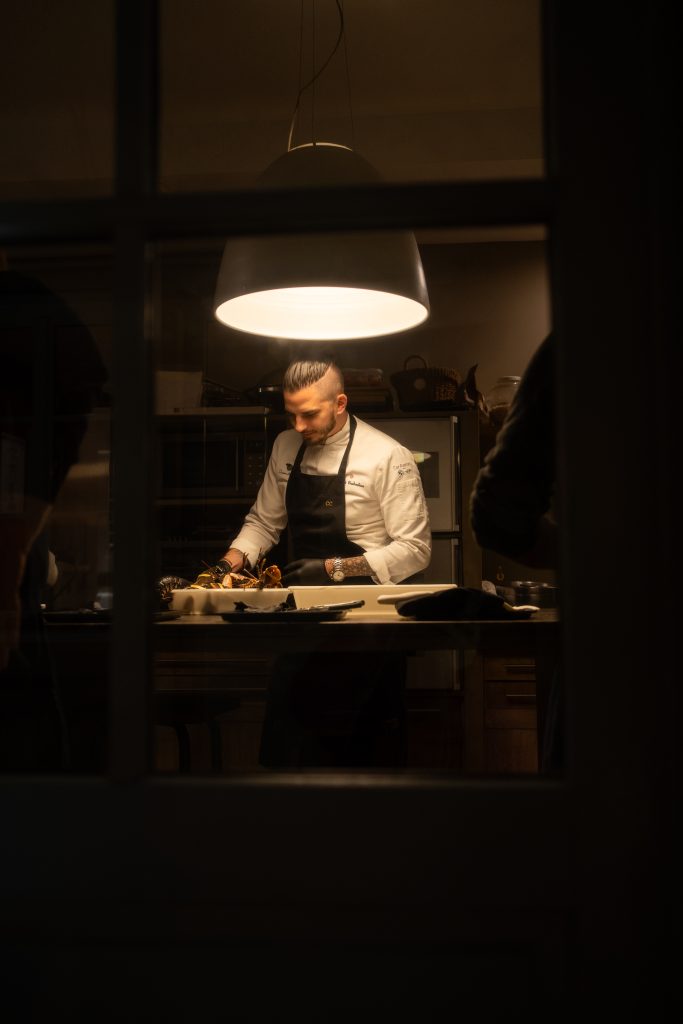
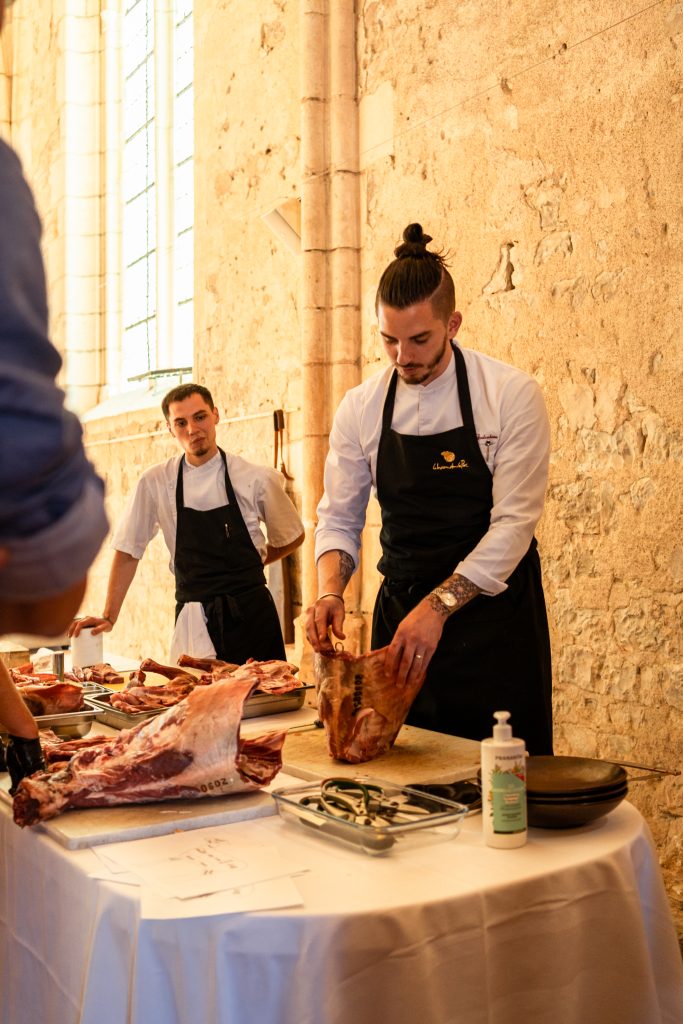
Origins and Influences: At the Heart of Your Dual Passion
Your cuisine bridges the richness of French terroir and the purity of Japanese cuisine. Do you feel closer to one of these worlds, or have you found an equilibrium that defines you?
Charles Coulombeau: It doesn’t feel like a big leap to me; I approach this on a micro-level. What defines my cooking is the balance between these two worlds.
My foundation lies in classical French cuisine, deeply tied to the terroir. However, Japanese cuisine shapes my creativity. When creating a menu, I often think about how to incorporate a Japanese touch—it frequently stems from umami. It’s the 21st-century chef’s pursuit and connects with various cuisines, like Hispanic or modern Nordic cooking, with elements like smoked, roasted, or charred flavors.
The challenge for me was launching a brasserie in Metz while democratizing the essence of my Michelin-starred restaurant. For example, I’ve introduced dishes like blanquette de veau with wasabi or deviled eggs with miso. Opening the brasserie in Metz has been an incredible adventure. I specifically avoided a commercial setup like a restaurant in a hotel that only opens in the evening. I wanted a lively space.
Do you remember the moment when Japanese cuisine became more than a curiosity and turned into a profound influence?
Charles Coulombeau: I wouldn’t describe Japanese cuisine as a profound passion or something I have infinite knowledge about. It started in 2018 when I took my first trip to Japan for two months. It took time to process and understand, but it was undoubtedly a turning point.
What I loved most was the respect for seasonality. At Japanese Michelin-starred restaurants, seasonality is central. For example, I visited three different places, and while they used the same seasonal seafood, each prepared it uniquely. This approach resonated deeply with me because it feels so natural. I also admire the discipline and precision of Japanese cooking—it suits me well.
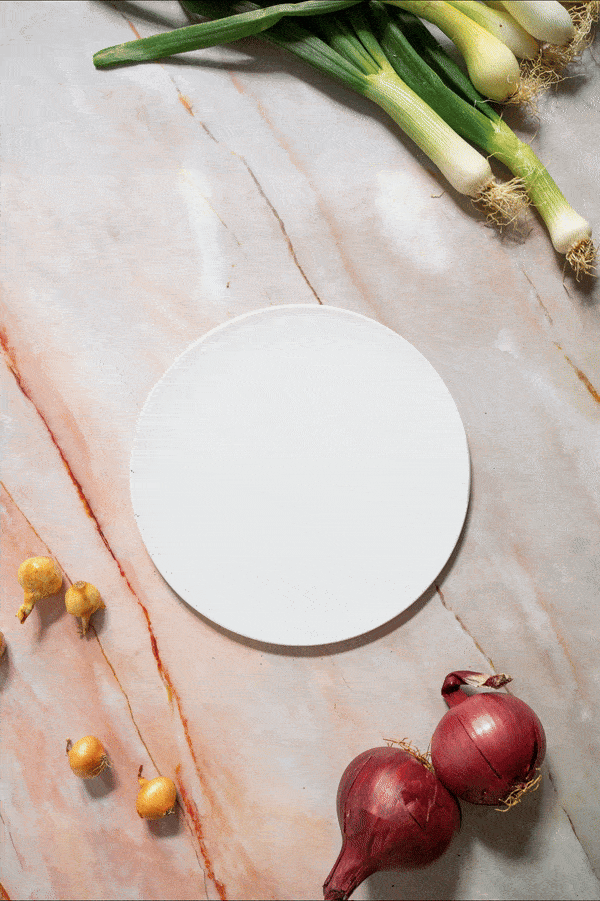
What sparks your creativity when working on a dish? Could it be cultural inspiration or something beautiful that resonates with you? I’m thinking of the photo series you did for Rolex. When you imagine a dish, do you sketch it, or do you just visualize it?
Charles Coulombeau: The question should be: “What triggers the creation of a dish?” I often force myself to create because we have a fast-paced menu rotation.
I start by asking: What proteins and vegetables are available? What combinations have I never tasted? I begin with something tangible, like a cutting board. Then I move to my computer, try things out, and let the process evolve. For me, creativity starts with the concrete before moving to the abstract.
I get bored with familiar pairings. For example, you’ll never find lamb chops with rosemary and garlic confit on my menu. I need to innovate.
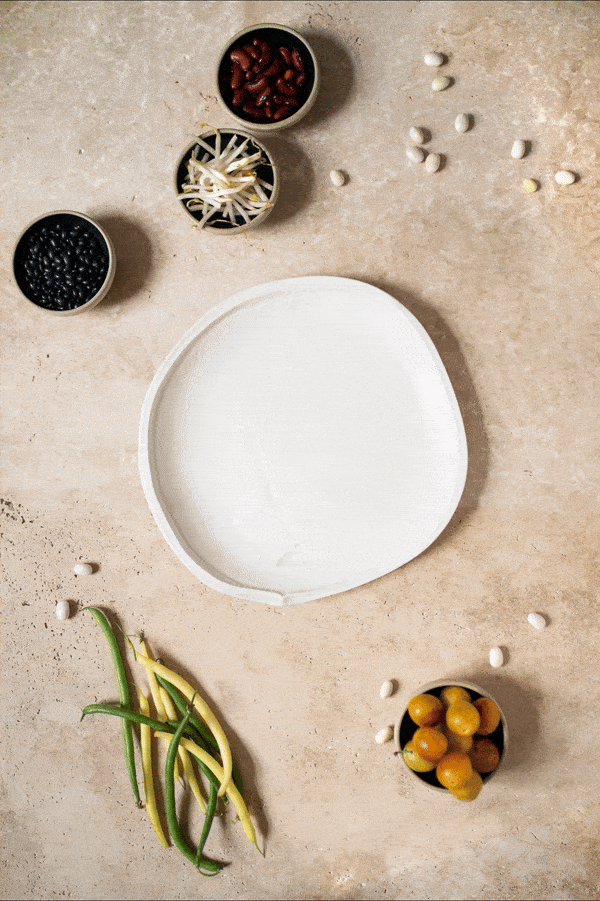
You’re known for your technical precision. Have you ever realized that a dish became “too technical” and lost it’s simplicity or emotion ?
Charles Coulombeau: I don’t over-intellectualize my cooking. When it comes to primary emotions like laughter or tears, those are collateral effects. For me, creating emotion means surprising people and crafting memorable experiences—that’s always the goal.
One hyper-technical dish I’ve created is a vegetarian starter with 30 preparations of a single vegetable. It’s almost a satire of technique, requiring two dedicated staff members to work on it. For example, right now, we’re focusing on beans: bean ice cream, vinaigrette, jelly, hummus, praline, and more. Before beans, we did carrots, beets, onions, and turnips.
Techniques and Emotion: Striking the Right Balance
Among your most technical dishes, which one was the hardest to master, and why?
Charles Coulombeau: Nothing is truly impossible to master, but that doesn’t mean every dish is easy. For me, the challenge isn’t about difficulty; it’s about timing and perspective. If I can’t figure something out, I don’t obsess over it—I step away and come back later with a fresh mindset. Sometimes, inspiration strikes when I least expect it, and what seemed complicated becomes clear.
You work with subtle ingredients like yuzu or miso, where precise measurements are crucial. Are you more instinctive or methodical in handling them?
Charles Coulombeau: Definitely methodical. For me, method shapes instinct. Precision is everything, especially with ingredients like yuzu or miso, where even a slight imbalance can overwhelm a dish. It starts with a solid foundation—strong training is essential to develop the discipline and understanding needed for consistency.
In my kitchen, we have a team of 25 chefs, and the scale of our operation requires a streamlined, methodical approach. Recipes need to be precise and reproducible, not just for the sake of flavor but to ensure everyone in the team can execute the vision perfectly.
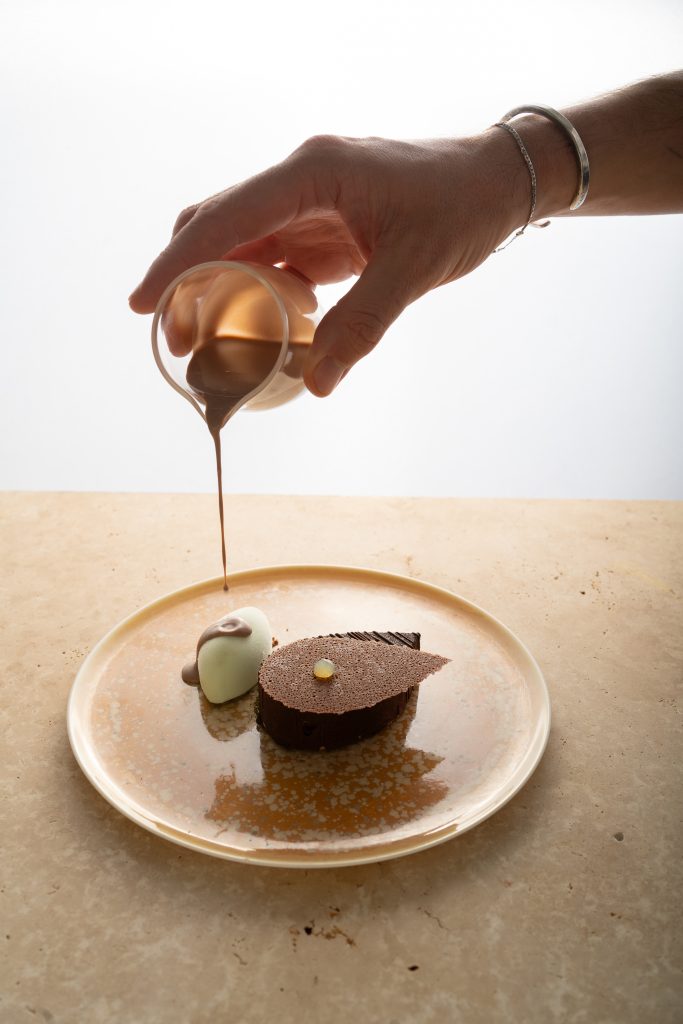
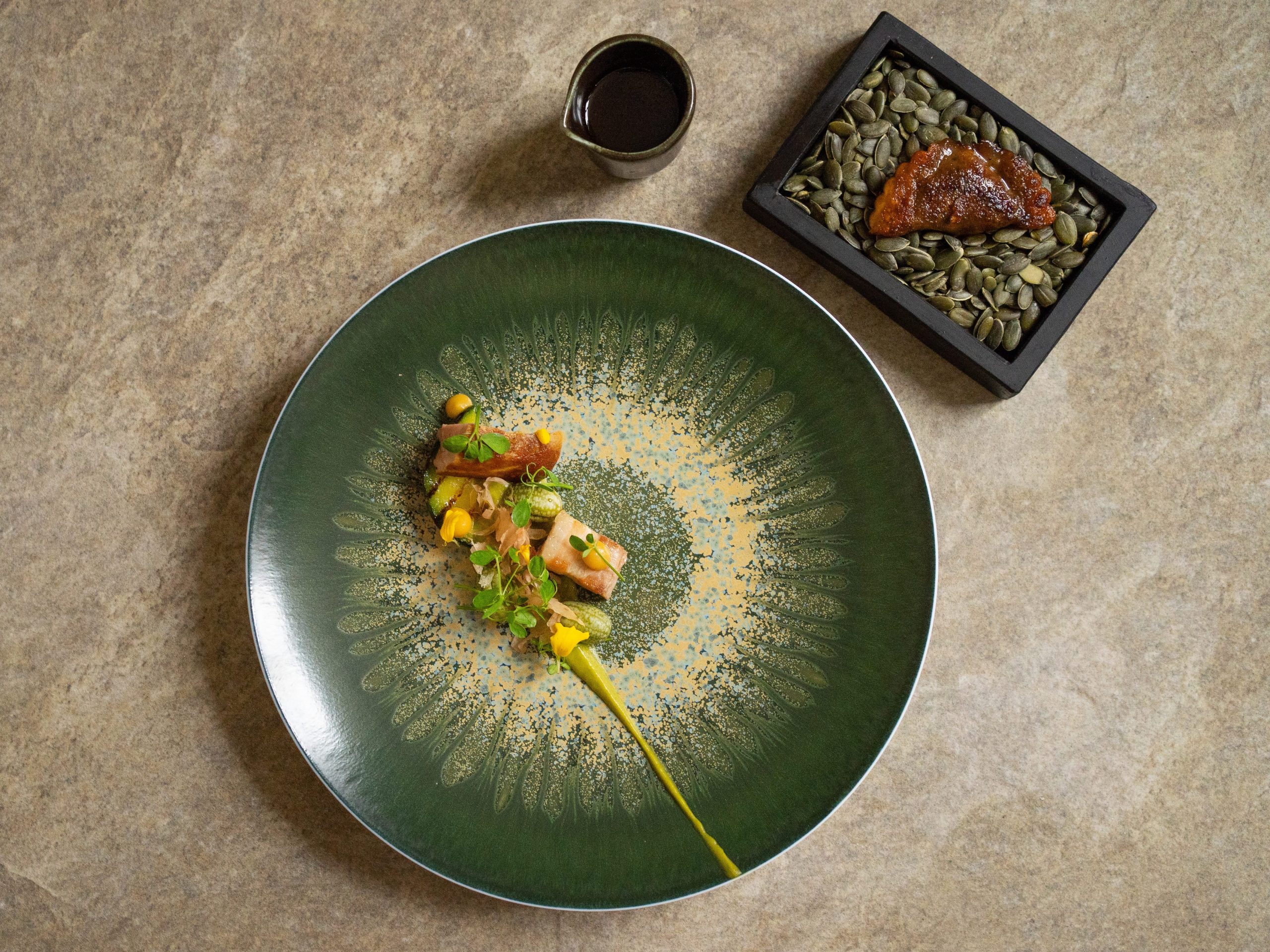
Family Heritage: A Connection to the Past
You seem very close to your father. What’s the most valuable lesson he taught you?
Charles Coulombeau : My father was an amateur cook, and he taught me the joy of cooking from the heart. He wasn’t just focused on the technical aspects of cooking; he wanted reactions at the table—“Is it good? What do you think?”—because, for him, cooking was about bringing joy to others. That idea of creating something to make others happy has always stayed with me
Your father explored medieval recipes. Have you ever revisited those for inspiration?
Charles Coulombeau: Not directly. My father was fascinated by historical recipes, but his focus in the kitchen was more about traditional Sunday dishes that brought the family together—blanquette de veau, coq au vin, or poule au pot. These were the meals that defined our family gatherings, and they were always made with care and an eye for detail.
What I’ve done is reinterpret these classic dishes in my own way, often adding a Japanese twist. For instance, incorporating miso for depth or yuzu for brightness, or using techniques that bring a lighter, more modern feel to those rich, comforting flavors. It’s not about reinventing the wheel but paying homage to the essence of those dishes while making them my own.
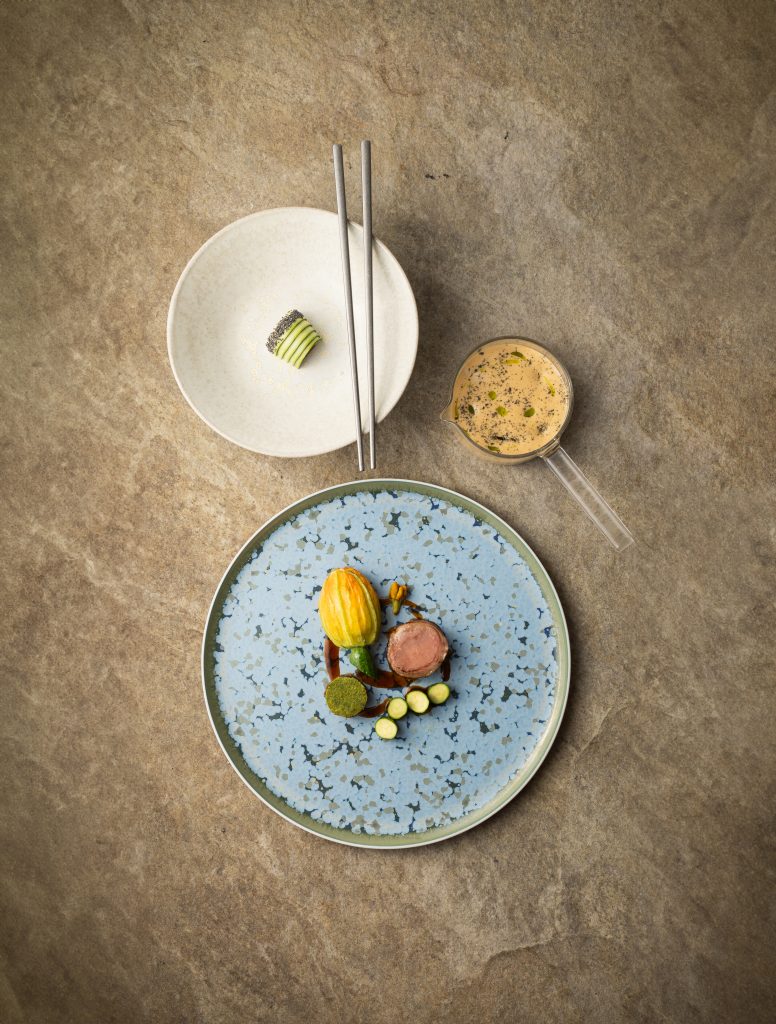
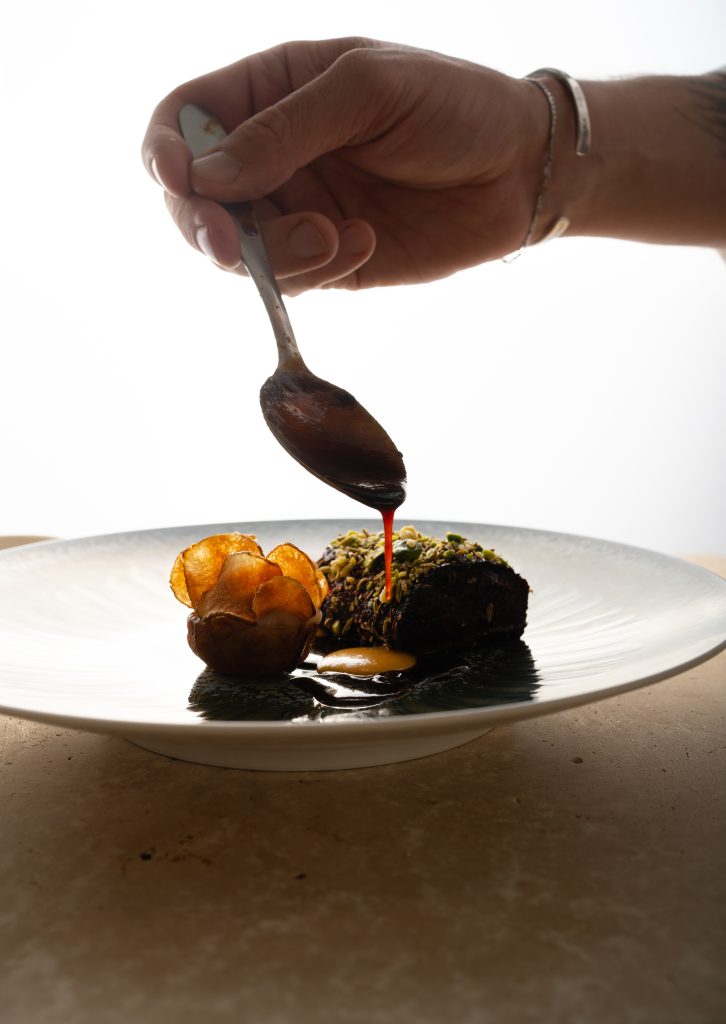
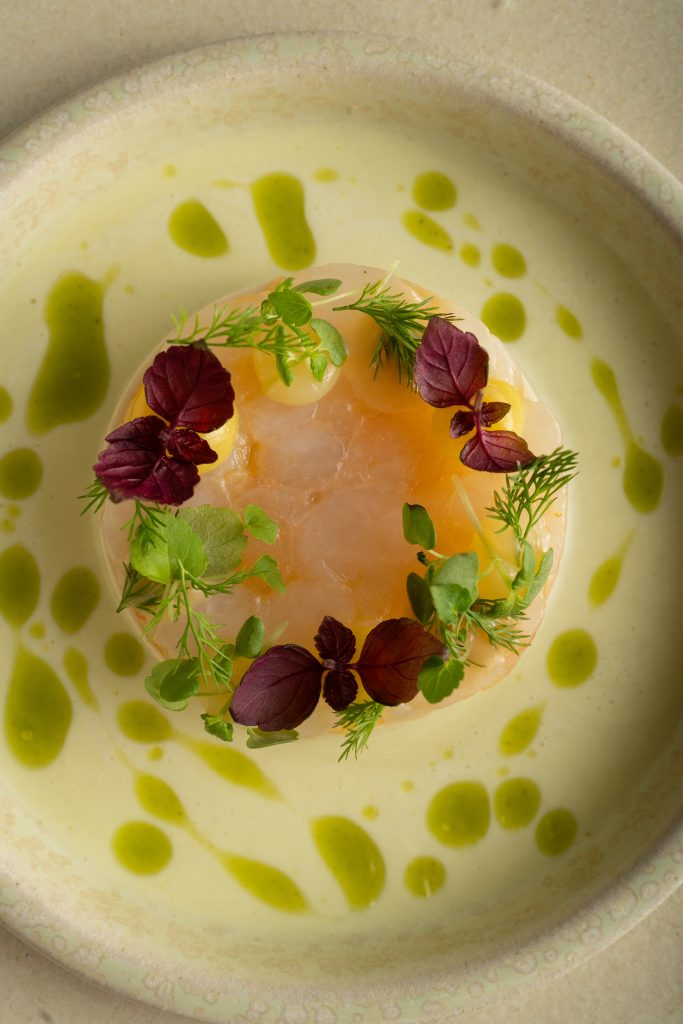
Ambitions and Future Projects
You’ve already explored Japanese cuisine. Do you dream of opening a restaurant in Japan?
Charles Coulombeau: Absolutely. For me, opening a restaurant in Japan would be a natural culmination of my journey. What excites me most is the idea of flipping the approach—cooking with Japanese ingredients but adding a twist inspired by French culinary traditions.
I imagine a small, intimate space, perhaps a counter with just 12 seats. It would be about creating a personal connection with the diners, focusing on the craftsmanship and detail that both French and Japanese cuisines celebrate. I’ve already developed a business plan for this vision.
One location I’ve considered is Kanazawa, a city that shares a connection with Nancy as its twin city. It has about 300,000 residents and offers a charm and atmosphere that align with the type of experience I’d like to create. From what I’ve learned, the Japanese perception of Kanazawa mirrors how Nancy is seen in France—refined yet approachable, with a deep respect for culture and tradition. It feels like the perfect place for this dream to take shape.
Beyond Japanese and French cuisine, is there another culinary tradition that intrigues you?
Charles Coulombeau: Southeast Asian cuisine—Thailand, Vietnam, and Korea. I recently visited Cambodia, and it left a strong impression.
Looking 10–20 years ahead, what’s your vision for Chef Charles Coulombeau?
Charles Coulombeau : Hopefully, I won’t have too many gray hairs or have gained too much weight! (laughs) But seriously, I envision leading a broad culinary ecosystem, building on the strong foundation of La Maison dans le Parc. It’s a powerful presence locally, and I see it remaining the heart of what I do—a place that inspires and drives everything forward.
I want to mentor and shape a new generation of talented chefs, giving them the tools to either grow with me or spread their wings and lead their own kitchens. At the same time, I dream of expanding internationally, perhaps with a small, intimate establishment in Japan or Southeast Asia, even tied to a boutique hotel.
Staying connected to my establishments is vital for me. I need to be hands-on and in the kitchen because that’s where I find my inspiration—during mise en place, experimenting, and creating alongside my team. However, managing multiple restaurants and their menus requires precision and organization, which is why I’ve invested so much time in systems like Excel. From tracking ratios to automating processes, it helps me streamline operations and focus on what matters most: the cooking itself.
At the end of the day, I want to bring people into my world, share my vision, and create something exceptional together. Sometimes I don’t communicate my ideas as clearly as I think, so it’s about making sure my team is fully in sync with me in that creative bubble.
Let me know if this feels more balanced!
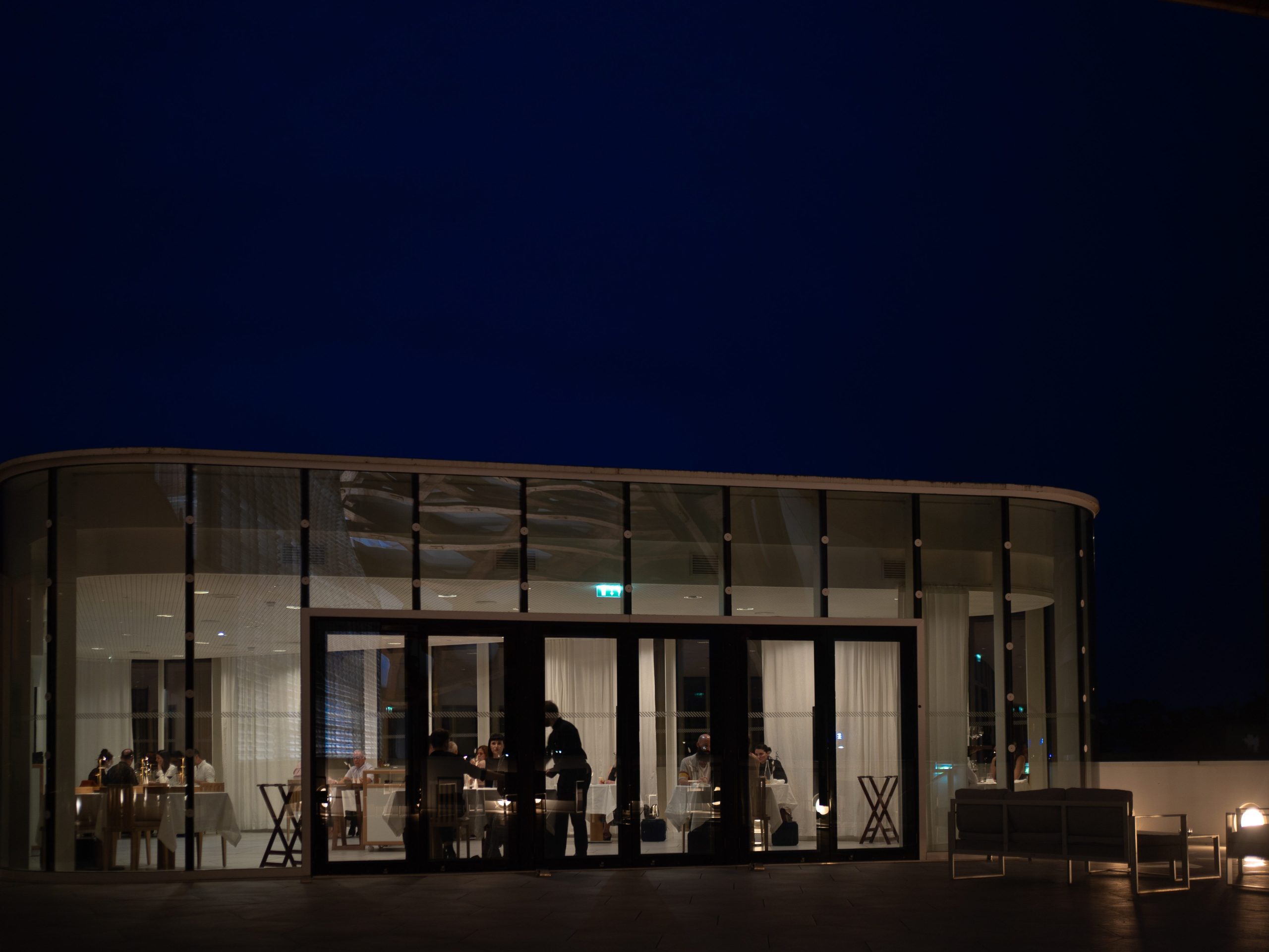
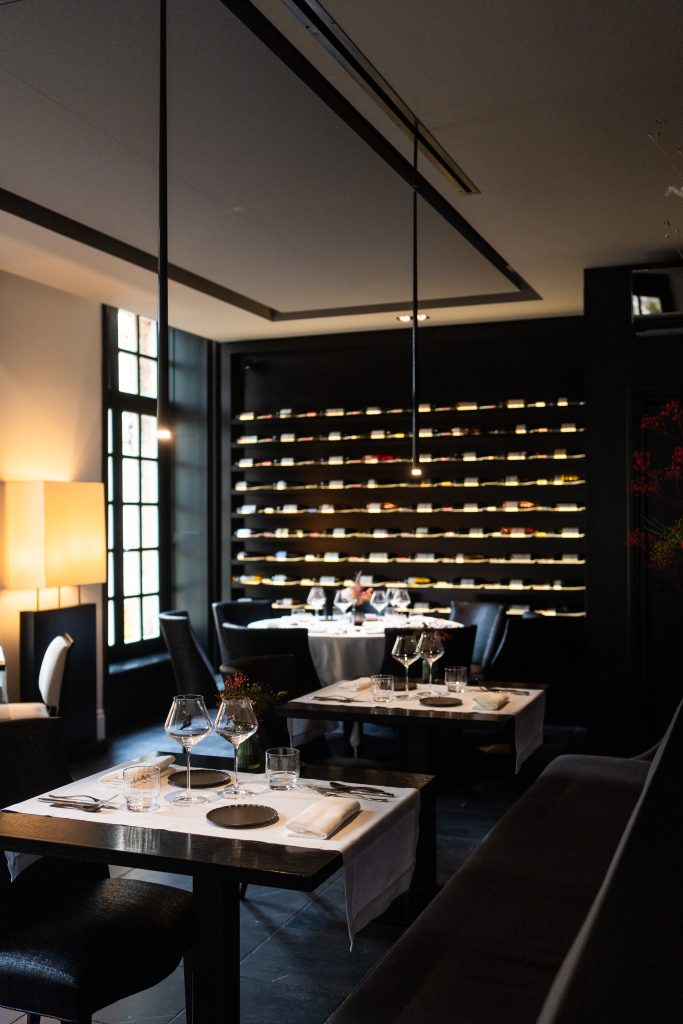
Closing Thoughts: The Vision of Charles Coulombeau
What’s truly remarkable about Charles Coulombeau is his ability to blend precision and technique with a genuine warmth that extends beyond the kitchen. Whether crafting intricate dishes or mentoring the next generation of chefs, he approaches everything with heart, discipline, and an unrelenting desire to innovate.
Through his work at La Maison dans le Parc and his visions for the future, Charles offers a glimpse into a world where tradition and creativity coexist seamlessly. It’s a world full of stories, flavors, and quiet moments of inspiration—just like those early mornings that shaped his path.
There’s no doubt that Charles’s journey will continue to inspire and surprise. For those who cross paths with him, whether through his dishes or his vision, it’s clear that his universe is one worth exploring.


